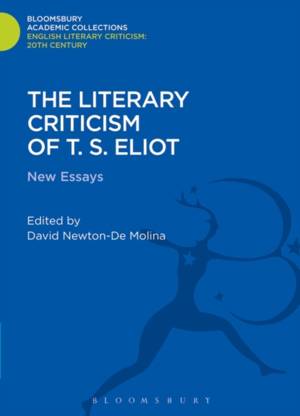
- Afhalen na 1 uur in een winkel met voorraad
- Gratis thuislevering in België vanaf € 30
- Ruim aanbod met 7 miljoen producten
- Afhalen na 1 uur in een winkel met voorraad
- Gratis thuislevering in België vanaf € 30
- Ruim aanbod met 7 miljoen producten
The Literary Criticism of T.S. Eliot
New Essays
Omschrijving
In his time T.S. Eliot established a new critical orthodoxy by which no major modern critic in England or America remained unaffected, but a decade has passed since his death and a generation or more since his extraordinary influence was at its height. It has therefore seemed worth attempting a fresh historical revaluation of Eliot's critical achievement and the nine distinguished scholars whom Dr Newton-De Molina approached responded readily to his invitation that they undertake such a project. Their essays range widely over the various aspects of Eliot's critical activity and place it in the context not only of his endeavours as poet and dramatist but also of his formal training as a philosopher and of his conversion to Christianity. They contrast the early and later work (not forgetting Eliot's own retrospective comments on the former), consider its relation to the English critical and poetic tradition, and seek to show in what ways criticism may derive new impetus from the example both of Eliot's strengths and of his limitations.
Specificaties
Betrokkenen
- Uitgeverij:
Inhoud
- Aantal bladzijden:
- 216
- Taal:
- Engels
- Reeks:
Eigenschappen
- Productcode (EAN):
- 9781472509055
- Verschijningsdatum:
- 8/05/2014
- Uitvoering:
- Hardcover
- Formaat:
- Genaaid
- Afmetingen:
- 156 mm x 234 mm
- Gewicht:
- 498 g

Alleen bij Standaard Boekhandel
Beoordelingen
We publiceren alleen reviews die voldoen aan de voorwaarden voor reviews. Bekijk onze voorwaarden voor reviews.










